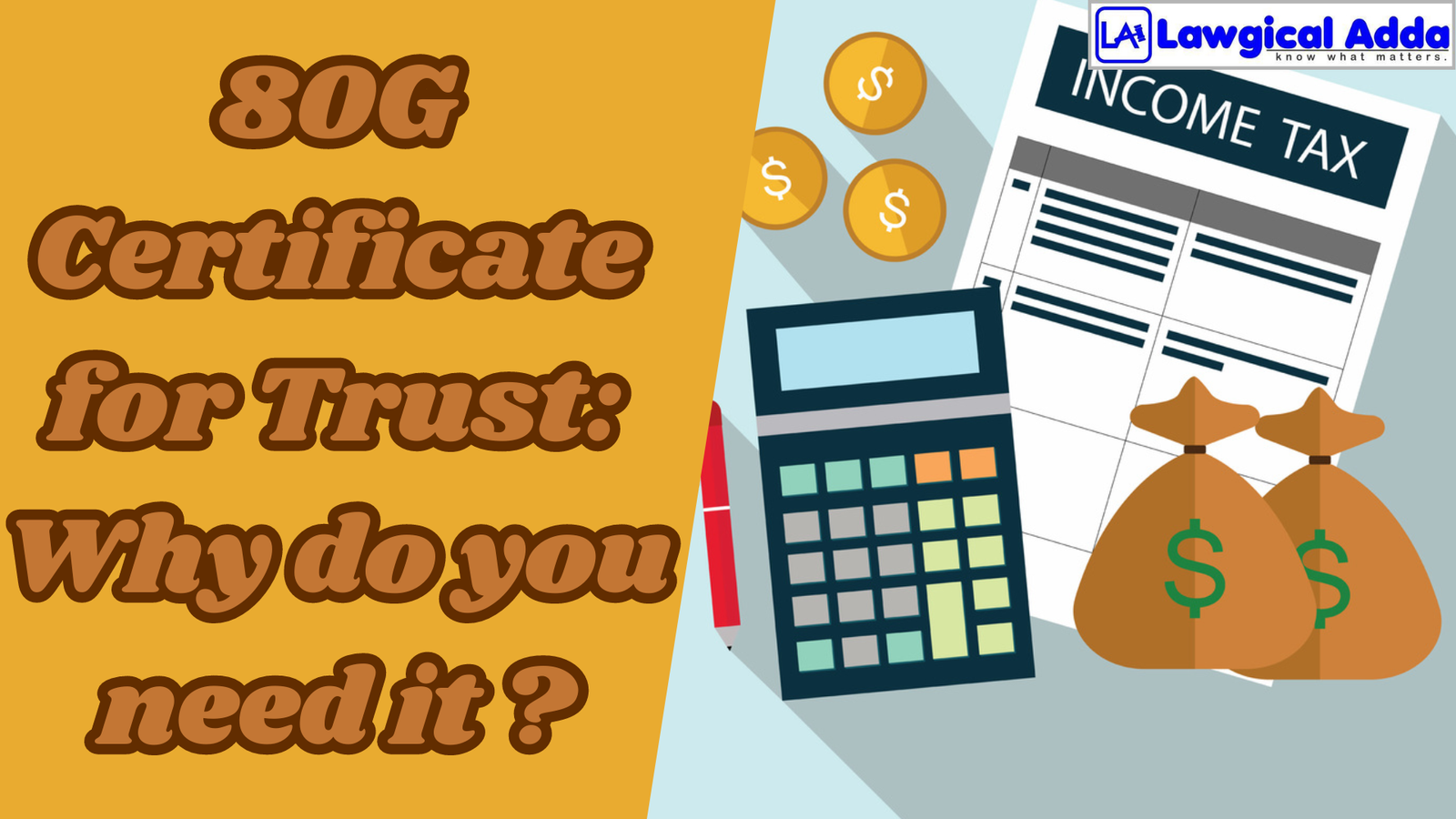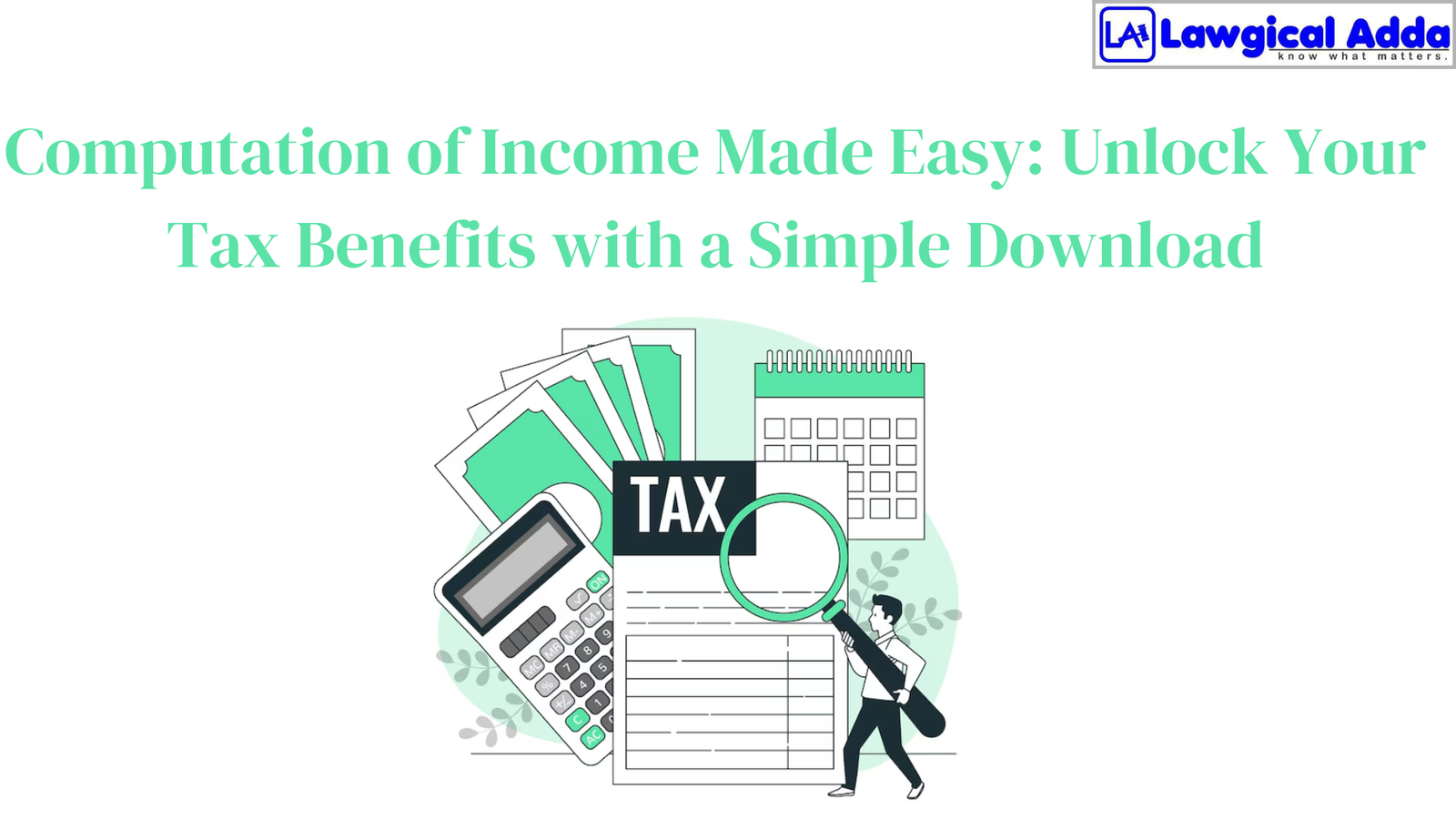80G Certificate for Trust: Why do you need it ?

Table of Contents
The government offers donors tax benefits to encourage contributions to non-governmental organizations. However, to take advantage of the tax deduction under the Income Tax Act of 1961, an 80G registration for trust in India is required.
There are two categories of benefits under the Income Tax Act: 12A and 80G registration. However, the 80G registration will be covered in depth in the current blog.
80G Section
Specific donations or contributions qualify for a tax deduction under Section 80G Certificate of the Income Tax Act. To be eligible for such certifications, NGOs and other non-profit organizations must register and authenticate with the Income Tax Department.
These organizations need strict policies to guarantee efficiency and openness because they receive donations from both individuals and companies. The government offers these organizations a range of tax breaks and incentives in exchange for their charity work.
We frequently think about making charitable contributions and other contributions to society. The government offers tax deductions for contributions made to charity organizations because of the altruistic nature of these acts.
According to the Indian Income Tax Act’s section 80G certificate, donations to relief funds and charitable organizations are tax deductible. To save as much tax as possible, you can benefit from both Section 80C and Section 80G deductions.
According to Income Tax Act Section 12AA
Enrolling in 12AA will exempt the organization from paying income taxes. After this registration, the organization’s revenue will be tax-free. To complete the 12AA registration application, utilize Form 10A.
The person who oversees the institution, the Commissioner of the Income Tax Department, shall handle your application for registration under section 12AA. Income tax exemption is available to all non-governmental organizations (NGOs), but it is only available to those who are aware of it and can utilize it.
Therefore, to take advantage of the exemption limit, all NGOs, Trusts, and other Not-for-Profit organizations must be aware of Section 12AA of the Income Tax Act.
Advantages of Registering Under Section 80G/ 12AA
- An income application is made for the fund you wish to use for religious or charitable causes. Simply put, an income application is a cost that a trust bears for religious or charitable reasons.
- The entire sum received will be exempt from taxes.
- An accumulation of income for charity or religious purposes, not to exceed 15 percent, may benefit an organization or individual registered under this section.
- Revenue accumulation is not included in total income since, according to Section 11(2), it is an application of income.
- NGOs are eligible for several licenses from various departments and authorities. Some organizations provide financial support to non-governmental organizations (NGOs), and they favor allocating monies to organizations registered with the 12AA.
- Registration under Section 12AA is a one-time process. Until you cancel it, the registration will remain active once you’ve finished it. One advantage that NGOs may be able to utilize with 12AA registration is that it does not require renewal.
Documents Needed
Before beginning the registration procedure, the following paperwork needs to be gathered:
KYC records for each beneficiary, author, and trustee of the trusts. All trustees, beneficiaries, and authors of the trusts have their Aadhaar cards and PAN cards as part of their KYC documentation.
- Gather a single passport-sized photo of each trust creator, beneficiary, and trustee.
- The Trust Act of India requires confirmation of the registered trust’s business address.
- The Trust Act of India requires the registered trust’s incorporation certificate to be registered.
- Information about the authorized signatory of the registered trust that the Trust Act of India requires
- Specifics of the registered trust’s assets and liabilities that need to be registered by the Indian Trust Act
- When registering, the trust’s income information will be needed.
- Information on the trust’s revenue for the three years prior
- The Trust Act of India requires the trust’s PAN Card to be registered.
- An inventory of the trust’s contributors as listed by the Indian Trust Act
- Form 10A must be obtained in a copy.
- Trust Book of Accounts
Online 80g Enrollment Process for Trust
To obtain an 80g registration for trust in India, take the following actions:
- Go to the Income Tax department’s website or portal and establish your login credentials.
- Enter your login information using the same credentials on the Income Tax Department’s official website.
- After selecting the “e-file” option, select “Income Tax Forms.”
- Select the “File Income Tax Form” option after selecting the “Income Tax Form.”
- Select “Person not dependent on any source of Income” from the list of possibilities.
- After selecting “Person not dependent on any source of Income,” choose Form 10A from the list of available forms.
- After completing the evaluation year, select the “Let’s get started” option by clicking the Continue button.
- Now finish the e-verification process by entering all the information for the 80G registration for trust.
- Once the e-verification procedure is finished, send in the form.
- Following that, the department will check your application, and if everything checks up, you will receive the trust’s provisional 80G certification.
- Applying for the final registration certificate under 80G for the trust is also necessary before the six months that follow receiving the provisional registration expire.
What Payment Method Is Applicable Under Section 80G?
When a taxpayer donates using one of the following ways, they can deduct Section 80G:
- Draft need for checks
- Money for contributions under ₹2,000
It’s crucial to remember that in-kind contributions—such as supplies of food, clothing, medication, and other items—and gifts totaling more than ₹2,000 are not tax deductible under Section 80G.
For donations over ₹2,000 to qualify for a Section 80G deduction, they must be made using a method other than cash.The rules of Section 80G explain the many categories of donations that qualify for deductions, ranging from 100% to 50% with or without restrictions.
List of Contributions Approved by Sections 80G and 80GGA
Donations of the following kinds are deductible under Sections 80G and 80GGA:
- Contributions to philanthropic organizations that alleviate poverty and provide aid to the underprivileged
- Contributions to philanthropic institutions supporting research and education
- Contributions to philanthropic groups that support rural development
- Contributions to philanthropic organizations that support culture and sports
- Contributions to particular religious institutions
Conclusion
For non-governmental organizations that depend on donations to fund their humanitarian endeavors, obtaining an 80G registration for trust in India is an essential first step. Section 80G of the Income Tax Act 1961 permits donors to claim tax deductions with this registration.
Without this registration, donors would not be able to receive tax benefits, and trusts would lose out on possible financial help.







